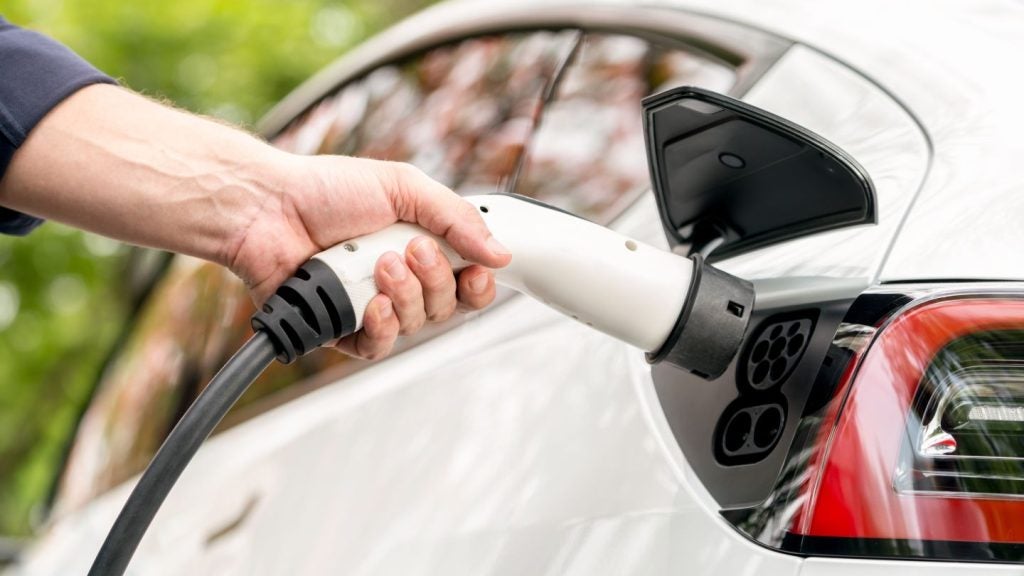The consumer’s relationship with the car is evolving in brand new ways that aim to deal with growing urbanisation and take advantage of new technological tools, but where does traditional motor finance fit into this picture? Chris Farnell canvasses industry opinions.
Motor Finance has talked before about the sea change in the automotive finance sector.
More and more often, the industry is seeing a move towards PCP and lease purchase agreements, with outright car ownership becoming a smaller part of the sector. Taking this to its natural extreme is the mobility sector, where people are either foregoing car ownership completely in favour of taxi and car-share apps such as Uber, DriveNow and Zipcar, or seeing their cars less as a product that they own and more as a service to which they subscribe.
“Globally, car sharing (or car clubs in the UK) has grown rapidly over the past few years,” says James Taylor, DriveNow’s UK marketing director. “As of 2016, there were over 15 million users sharing 157,000 vehicles. Europe accounts for just under a third of all car club users, and DriveNow has grown to over 1 million users across 12 European cities since launching in 2011.”
Jonathan Hampson, general manager at Zipcar UK, agrees, adding: “Broadly, urban mobility is something that continues to grow and grow with the volume of solutions coming to market.
“I have a very strong view that private car ownership in cities is declining, and in its place are a number of ways we can get around through these new mobility options coming to market. It’s a vibrant marketplace with a lot going on.”
How well do you really know your competitors?
Access the most comprehensive Company Profiles on the market, powered by GlobalData. Save hours of research. Gain competitive edge.

Thank you!
Your download email will arrive shortly
Not ready to buy yet? Download a free sample
We are confident about the unique quality of our Company Profiles. However, we want you to make the most beneficial decision for your business, so we offer a free sample that you can download by submitting the below form
By GlobalDataMobility Trend
Graeme Banister is the founder of Carpedrive, a mobility business within InMotion Ventures, a company that has been investing in startups in the mobility space as well as opening up its own businesses. It has been paying close attention to the mobility trend.
“My focus area is flexible motoring with an aspiration towards subscription, a 12-month unlimited mileage service, and all motoring costs bar fuel,” he explains.
“It’s a shorter contract than you might get in the traditional lease space. People want to change their car more frequently to access the latest technological innovations and the exciting range of new cars, and leasing is a clean mechanism where you’re not beholden to car ownership.”
While this may be a trend that is yet to take off in the UK to the extent that it has elsewhere, everyone agrees that the market is definitely present.
“Despite the global growth in car sharing, it remains a relatively niche service in the UK. There are currently around 350,000 car club members in the UK, but I would expect this to grow considerably over the next few years,” Taylor says. “2018 was a strong year for the UK car-sharing sector, and for DriveNow in particular. 2018 was our most successful year since launching in London.”
Banister adds: “The UK market is unusual compared to others in the extent to which PCP is so dominant. While customers are signing up to three- or four-year PCP deals, very few of them actually take ownership of the car at the end of the contract, so I think there’s an inherent appetite and understanding within the UK population about cars as a utility.”
Car ownership has historically been a status symbol, whether through the family motor or a company car. In the current day and age, however, ownership and its associated costs are increasingly seen as an unnecessary liability.
“Private cars are very inefficient: they sit parked and unused for over 95% of the day. When they are used, they generally have a much lower occupancy rate than shared vehicles,” explains Taylor.
“From a financial perspective, car sharing provides access to cleaner vehicles without the hassle and cost of ownership. These costs include tax, MOT, fuel, servicing, repairs, depreciation and parking. People don’t always account for all these costs when they choose to own and use a private vehicle.”
For drivers who travel fewer than 8,000 miles a year – a sizeable chunk of the market – moving to a car club could save them £3,500 a year, according to CoMo UK, an organisation that supports the development of shared modes of transport.
“There is a reality that owning a car in the city, however you finance it, is becoming more of a hassle,” Hampson says. “You’re getting hit with increasing permit charges and emission zones. City authorities are increasingly regulating against the private car.”
As well as being a hassle-free – and in many ways cheaper – way of accessing a car, mobility schemes also have the advantage of offering financial tools that customers understand far more intuitively than the sometimes confusing and jargon-filled finance market.
“Subscription is a neat way in the automotive space of demystifying all the financial instruments,” Banister points out. “A customer thinks: ‘I need a car for a set amount of time. How much will it cost me? What will I be liable for?’ It’s something we can all understand.
“If you want a car all the time, 24/7, traditional funding may be for you, but if there are times of year when you could do without a car, then subscription or shorter-action, digitised options maybe become more compelling. These are the things that people will take up, where you use it for three months and then give it away while you’re on holiday for three weeks.”
Urbanisation
Convenience and money-saving aside, however, other factors are also driving the growth of this sector.
“Over the past few decades, we have seen huge growth in urbanisation, and this is predicted to continue, with over 90% of the UK’s population expected to be living in urban areas by 2050,” Taylor says. “This growth places huge pressure on space in our cities, with rising congestion and deterioration in air quality.”
He continues: “Alongside this, devolution has granted local authorities in the UK greater powers over their transport systems, with transport planners looking for solutions to improve air quality and reduce the number of vehicles on our roads. As authorities place more restrictions on private car ownership to try to improve air quality, consumers are looking for alternatives for those journeys where they need a car. Car sharing provides that alternative.”
Hampson adds: “It has to change now, because cities are coming under increasing pressure in a few different ways: there are more people coming into the city – urbanisation is very much continuing – and there are lots of figures about how London’s population increase is putting pressure on infrastructure in terms of space.
“If you maintain the status quo – owning cars – it doesn’t work. There’s not the space for that to happen. I think that’s what’s really pushing authorities to ask: ‘How are we going to cope? What are the coping mechanisms?’ One is making sure that people don’t own cars any more, but are encouraged to share.”
As well as the political and environmental factors, advances in technology have also made these solutions far more practical.
“One of the biggest factors has been the growth in the use of smartphones,” says Taylor. “According to Statista, the UK has a 70.8% smartphone penetration, which has revolutionised the way we access services and have made on-demand transport services possible.”
Taylor also points out the parallels between consumer relationships with cars and other products that are rapidly becoming services.
“We no longer own records or DVDs, but stream music and films via app services such as Spotify and Netflix. We are seeing this same shift with mobility,” he says.
“Technology has facilitated the growth of the car club sector. Using their smartphone, DriveNow customers can see where the nearest car is, reserve it, unlock it and then lock it at the end of their rental. We no longer need to have dedicated locations for our vehicles – GPS and smartphone technology have removed the need for this.”
Framing a Response
With the mobility sector in all its myriad forms transforming relationships with cars and how drivers pay for them, how are more traditional businesses in the motor finance sector to respond? Many are already experimenting with a number of different approaches, including moving into the sector themselves.
“If I look at how organisations are responding, the obvious one is car manufacturers realising that the future is not going to be about selling cars and making goods, it’ll be about offering services,” Hampson says.
“The example in our area is that we’re partnered with Volkswagen, and in partnership with them we’ve launched 325 electric vehicles in London. If I extend that to finance and our finance partner, Volkswagen Financial Services, we’re leasing the cars from them. There are lots of people trying to get into mobility in different ways.”
While a quick look at the numbers demonstrates that the UK car market is undergoing a difficult period, this is not something that can be laid at the door of the mobility sector alone. On the contrary, in the short term at least, it may even prove to be a boon to the market.
“It seems unlikely that this fall can be attributed to the growth in car sharing,” Taylor says. “Having said this, it is clear that the growth in car sharing will have an impact on car sales.
“Evidence suggests that car clubs have a positive impact on the behaviour of city dwellers in particular, helping to remove older, more-polluting vehicles from our roads. For every car club vehicle, up to 13 private vehicles are either sold or disposed of, and total household vehicle mileage is reduced by 570 miles per annum on average. So while the impact on new car sales may be relatively small at the moment, as the sector grows I would expect the impact to increase, particularly as authorities take steps to discourage private car ownership.”
“The market is changing in the sense that unless HMRC really gets a grip on it, the company car is going to die,” Banister says bluntly. “We certainly are speaking to a lot of people making conscious decisions to take the cash rather than the company car, or the businesses themselves are saying: ‘I don’t want to do company cars anymore: it’s too much of a headache.’”
It is an effect that is going to have a direct knock-on into mobility, Banister believes. “That’s why you’re seeing such growth in private leasing,” he explains. “People who are used to a company car don’t want to take the backward step of organising all their bits and pieces themselves, so they come to services like the one we’re offering.”
However, Banister also believes traditional car finance firms will have to learn from one of the core assets that the app-based mobility sector has been able to accumulate: data.
“The problem car finance companies have is that they don’t really know their customers; they’re often sitting behind the main brand. Particularly in the leasing sector, the customer has a relationship with a broker, who has a relationship with the funder,” he says.
“I think, generally, motor finance is a commodity. Rightly or wrongly, data is going to play an important part, and finance companies need to put themselves in a place where they’re getting hold of data to understand their customers better.”
The finance industry is just one part of a larger picture here; cities and laws are all still learning how to work with and around an industry that simply did not exist 20 years ago.
“There are many new mobility providers entering the market. The challenge now is to ensure that central and local governments and local authorities embrace these new providers, such as car sharing, as part of the solution,” Taylor says. “This can be conducted through regulation that enables and encourages innovation, or through incentives to encourage private car owners to switch to more sustainable, shared forms of transport.”
Hampson agrees, adding: “One of the challenges is working with cities: it’s a challenge and an opportunity. It’s a well-trotted-out phrase that policy tends to come behind innovation, and as all these new mobility initiatives come about, cities are grappling with how to accommodate them or whether they should accommodate them. There are all kinds of examples of where policy has not kept up: either there’s a patchwork approach – that’s certainly the case in London – or innovation has not been able to come into a city because policy doesn’t allow it.”
Of course, while businesses and even governments will need to find ways to work alongside these innovations, it is worth pointing out that not all innovation is good.
“Just because there are lots of mobility solutions coming along, it doesn’t mean that all of them are good ideas. There are lots of things out there, and we will see which ones stick,” Hampson notes.
“Some car manufacturers are getting into the sector not necessarily because they thought they needed to get into broader mobility, so a challenge for the wider motor sector is to understand their role in mobility. Are they going to be the best ones to provide, or should they stay at the manufacturing side while letting others provide the service? Understanding your core competency is going to be vital.”







